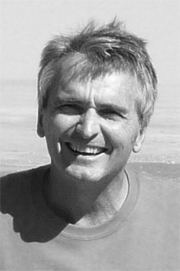
Obama's Environmental Legacy is Mixed and VulnerableBy LEON KOLANKIEWICZ
January 16, 2017
Most established environmental groups would disagree vehemently with this lackluster appraisal, but since the environmental establishment is in bed with the Democratic Party nowadays, its own opinions on Obama's environmental legacy are suspect. Graham observes that, unlike Theodore Roosevelt (our greatest conservation president), who was fascinated by nature even as a sickly city boy in New York City, young Obama had little interest in the nature that surrounded him on the lush, beautiful Hawaiian island of Oahu. Graham writes: "...life in Honolulu...never seemed to pivot on island landscape or wildlife .... [Obama] and his biographers tell of basketball games, long walks through the city, movies seen, hanging out at Mr. Burger's Drive-In, dabbling in beer, cocaine, marijuana. It might as well have been Topeka, Kansas, where his mother was raised." Graham's observation is seconded by Time magazine's Michael Grunwald, who wrote: "Obama was no tree-hugger. Nature wasn't something he felt in his gut." Since these unflattering words, however, President Obama has stepped up his environmental game, perhaps with a view to leaving behind a legacy surpassing "wobbly." First and foremost, he made addressing climate change a priority, which he had not in his first term. Obama helped forge the landmark 2015 international agreement on climate in Paris (COP 21), which aims to keep the average global temperature rise below the 2 degree Celsius threshold. While the agreement has been disparaged by some climate scientists and activists as long on promises and short on commitments, it still represents a step forward. Obama's Clean Power Plan targets carbon dioxide (CO2) emissions from coal-fired power plants, aiming to reduce them by a third over 25 years. And he opposed the carbon-hefty Keystone XL pipeline. Obama also has been an ardent booster of wind and solar energy, which are greener than fossil fuels, if not cure-alls. One downside is that wind turbines kill eagles and other birds, lots of them., Although Obama once boasted of increasing oil and gas production under his administration, he recently thrilled enviros by banning offshore drilling "permanently" across millions of acres of the Atlantic and Arctic oceans. Federal courts will have to determine just how permanent this ban really is., In recent weeks, the president vastly expanded a marine protected area near Hawaii that Bush had originally established., In sum, with one significant exception, Obama's environmental legacy is largely favorable, though not outstanding; it would certainly have been better with a more environmentally friendly and cooperative Congress rather than the recalcitrant Republicans he faced. The exception is his push to increase U.S. population growth by boosting immigration levels. A larger population exacerbates strains on all environmental resources, a basic principle environmentalists once grasped firmly. But now they zip their lips to appease their Democratic Party masters, who view new immigrants as new Democratic voters. It is absurd to ban oil drilling and commit to reducing CO2 emissions, all while constantly increasing the sheer number of oil consumers and CO2 emitters. In any event, much of Obama's positive environmental legacy is vulnerable under a Trump presidency. If Trump's hostile campaign rhetoric and his early Cabinet picks are any indication, the president-elect ---- whose interest in the Great Outdoors seems to extend no further than his own golf courses ---- is already striving his utmost to become the worst environmental president in American history. Donald J. Trump is the anti-Roosevelt.
Leon Kolankiewicz is an environmental scientist and wildlife biologist and can be reached at info@CAPSweb.org. ©2017 Leon Kolankiewicz and Capsweb.org. Representations of fact and opinions in comments posted below are solely those of the individual posters and do not represent the opinions of Sitnews.
|
|||
